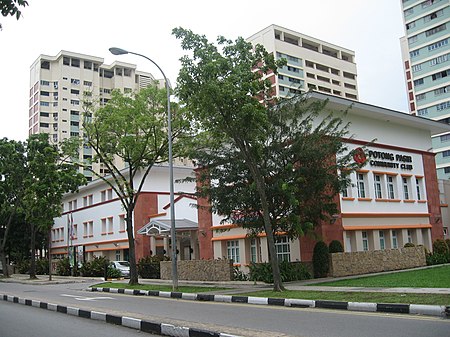The Toa Payoh ritual murders took place in Singapore in 1981. On 25 January, the body of a nine-year-old girl was found at a block of public housing flats in the town of Toa Payoh, and two weeks later, the body of a ten-year-old boy was found nearby.
The murders were masterminded by Adrian Lim, a self-styled healer who pretended to have supernatural powers and scammed people for years. He had also been sexually assaulting female clients, often preying on younger women from impoverished backgrounds. Two clients later engaged in a relationship with him. They were: Tan Mui Choo, who he married, and Hoe Kah Hong, who was his "holy wife"—a term he used to manipulate women into having sex with him. Lim subjected them to extensive physical, sexual, mental and financial abuse, including forcing Tan into prostitution, for years before instigating the killings in which they participated.
In 1980, Lim drugged and raped a woman who filed rape charges against him. To derail police investigations, Lim decided to kill children, and made Tan and Hoe help him. Lim also sexually assaulted the girl victim. The trio were arrested after the police found a trail of blood leading from the body of the boy to their flat. Although the case name suggested ritualistic murders, the defendants said they did not conduct prayers, burning of joss sticks, ringing of bells, or any other rituals during the killings.The 41-day trial was the second longest to have been held in the courts of Singapore at the time. None of the defendants denied their guilt. Their appointed counsels pleaded diminished responsibility, arguing that the accused were mentally ill and could not be held entirely responsible for the killings. Their experts, doctors and psychologists, analysed the defendants and concluded that they had exhibited schizophrenia, and depressions of the psychotic and manic order. The prosecution's expert, however, refuted testimonies and argued that all three individuals were in full control of their mental faculties when they planned and carried out the murders. The judges agreed with the prosecution's case and sentenced the trio to death. While on death row, the women appealed to the Privy Council in London and pleaded for clemency from the President of Singapore to no avail. Lim did not seek any pardons. The three were hanged on 25 November 1988.
The murders shocked the public in Singapore. Reports of the trio's deeds and the court proceedings were closely followed and remained prominent in the Singaporean consciousness for several years. Twice, movie companies tried to capitalise on the sensation generated by the murders by producing motion pictures based on the killings; however, critics panned both films for indulging in gratuitous sex and violence, and the movies performed poorly at the box office. The actions and behaviour of the three killers were studied by academics in the criminal psychology field, and the rulings set by the courts became local case studies for diminished responsibility.






